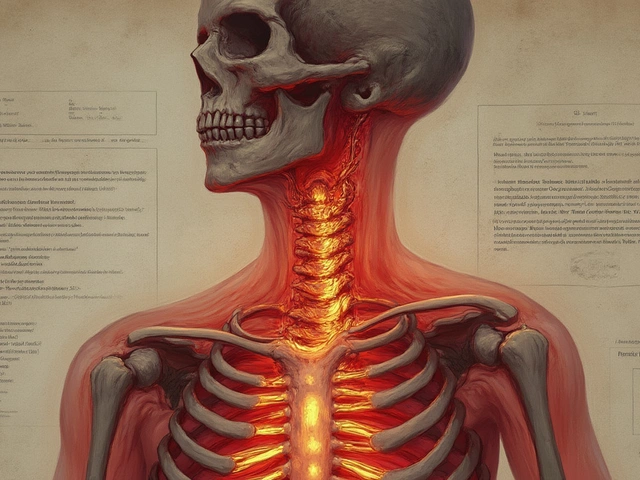
Hey, did you know your metabolism doesn't quite work the same once you hit 60? Yep, things slow down, but there's good news—there are ways to rev it back up. It’s all about making simple tweaks to your diet and lifestyle.
Firstly, let's get real about what happens. Muscle mass tends to decrease with age, and this directly impacts your metabolic rate. So, what's the solution? Start by incorporating some strength training. Even light exercise can help maintain muscle and thus your metabolism.
Diet-wise, it's not about eating less but eating smart. Consider adding more protein to your meals. This not only aids in muscle repair but also boosts your metabolism due to the energy required to digest it. Love a good breakfast? Don't skip it! A nutritious breakfast gets your metabolism going from the get-go.
Stay tuned for more tips on diet, exercise, and lifestyle choices that can make a substantial difference as you embrace the golden years with vigor!
- Understanding Metabolism Changes After 60
- Dietary Adjustments to Boost Metabolism
- Exercise Tips for Staying Active
- Lifestyle Habits to Sustain Metabolic Health
Understanding Metabolism Changes After 60
Alright, let's talk about what really happens to our metabolism when we hit 60. It's not just a number; things genuinely shift. You've probably noticed it's not as easy to maintain the same energy levels or keep off those extra pounds. So, what’s going on?
The biological fact is that as we age, our muscle mass tends to decrease—a process called sarcopenia. This reduction affects your resting metabolic rate because muscle burns more calories than fat. In simple terms, less muscle means fewer calories burned, even when you're not doing much.
Dr. Jane Wilson, a leading gerontologist, explains,
"Metabolism doesn't just slow down; it adapts to various hormonal changes and altered lifestyles common as we age. Staying active and conscious of diet can mitigate the natural metabolic decline."
Here's a quick look at what's happening under the hood:
- The body's production of certain hormones like testosterone and estrogen decreases, which can lead to weight gain.
- There's a tendency to be less physically active, which impacts muscle maintenance.
- A slower digestive system can mean nutrient absorption isn't as efficient as it used to be.
And here's a bit of nerdy data for those who love numbers:
| Age Range | Average Muscle Loss per Decade |
|---|---|
| 60s | 8% |
| 70s | 15% |
Embracing changes thoughtfully, from increasing movement to adjusting dietary habits, can play a massive role in keeping your metabolism running smoothly. So don't fret—there's plenty you can do to turn the tide!
Dietary Adjustments to Boost Metabolism
Alright, let’s chat about how changing what you eat can really crank up your metabolism after 60. It's not just about cutting calories; think about what works best for your body now.
Start with protein. Foods rich in protein, like chicken, fish, beans, and nuts, aren't just great for muscle repair; they actually enhance caloric burn through digestion. This is called the thermic effect of food, and it can be your new best friend.
Next up, hydration. Water isn't just for hydration; it helps keep your metabolic wheels turning. Drinking water actually increases your resting metabolic rate temporarily. So, grab that water bottle and keep it filled!
- Add Fiber: Whole grains, fruits, and vegetables not only keep things moving (if you know what I mean) but also help regulate your appetite and metabolism.
- Mind the Spices: Certain spices like cayenne pepper and cinnamon can slightly increase metabolic rate. Give your meals a little kick!
- Steady Meals: Eating small, frequent meals instead of one or two large ones can keep your metabolism consistent and prevent energy crashes.
Oh, and don’t forget about tea and coffee. Green tea and black coffee can boost metabolism for a few hours. Just be mindful of not overdoing caffeine!
Look, every bit helps, and making these small modifications to your diet can cumulatively have a big impact. Try integrating one or two changes each week, and watch how your body responds!

Exercise Tips for Staying Active
Staying active after 60 is all about moving in ways that suit your lifestyle and health needs. A common challenge is that our bodies aren't as agile as they used to be, but that's no reason to stop moving. Let's chat about some practical exercise habits that can boost your metabolism and help you stay fit.
First up, balance exercises. These can be as simple as standing on one foot while brushing your teeth. Balance exercises are great because they not only help prevent falls but also engage core muscles, giving your muscle mass a nice workout.
- Strength training: Use lightweight dumbbells or resistance bands for exercises like bicep curls or leg lifts. No need for an intense gym session—a few sets a couple of times a week can do wonders.
- Cardio workouts: Walking is underrated. A brisk walk in the park or around your neighborhood can kick your metabolism into gear and improve cardiovascular health.
- Flexibility: Incorporate stretching or yoga. These practices not only improve flexibility but also enhance mindfulness, contributing to overall well-being.
As Michelle Rogers, a fitness expert, puts it,
"Exercise shouldn't be intimidating or painful. It's about finding what you enjoy and making it a part of your lifestyle."Embracing low-impact activities like swimming or cycling can also be beneficial, especially if you're dealing with joint issues.
Here's a quick tip: Use a fitness tracker to monitor your progress. Aiming for 10,000 steps a day is a solid start. Remember, consistency is key. Even short bursts of activity contribute to your daily goals.
Staying active by following these tips can make a real difference in maintaining a healthy weight and boosting your metabolism without overexerting yourself. Your 60s and beyond can be some of the most enjoyable years if you stay active and embrace the process!
Lifestyle Habits to Sustain Metabolic Health
So, you’re interested in keeping your metabolism ticking efficiently even after 60? Great! It all starts with some everyday habits that can make a real difference.
Staying hydrated is super important. Water is essential not just for digestion but also to help burn calories. It’s a simple action that often goes overlooked. How much water should you aim for? Generally, the good old 8 cups a day rule works, but adjusting to personal needs and climate is key.
Another neat trick is to manage your stress. Chronic stress can lead to an increase in cortisol levels, which can mess with your weight loss goals. Techniques like yoga, meditation, or even just a daily walk can help keep stress in check.
Let’s talk sleep. It’s easy to underestimate, but a good night's sleep can do wonders for your metabolism. Aim for 7-9 hours. Quality sleep optimizes hormone levels that control appetite and weight!
Lastly, never underestimate the power of laughter. Yep, laughing not only boosts your mood but also burns a few calories. Finding joy in little things can contribute to a more vibrant life.
Here’s a quick look at some basic daily habits!
- Drink adequate water regularly.
- Find ways to de-stress and relax.
- Maintain a consistent sleep routine.
- Include laughter and fun activities in your day.
There you have it — combining these lifestyle tweaks together helps keep that aging metabolism on its toes! Try incorporating a couple at a time and see how they work for you.





Rohan Talvani
I am a manufacturing expert with over 15 years of experience in streamlining production processes and enhancing operational efficiency. My work often takes me into the technical nitty-gritty of production, but I have a keen interest in writing about medicine in India—an intersection of tradition and modern practices that captivates me. I strive to incorporate innovative approaches in everything I do, whether in my professional role or as an author. My passion for writing about health topics stems from a strong belief in knowledge sharing and its potential to bring about positive changes.
view all postsWrite a comment